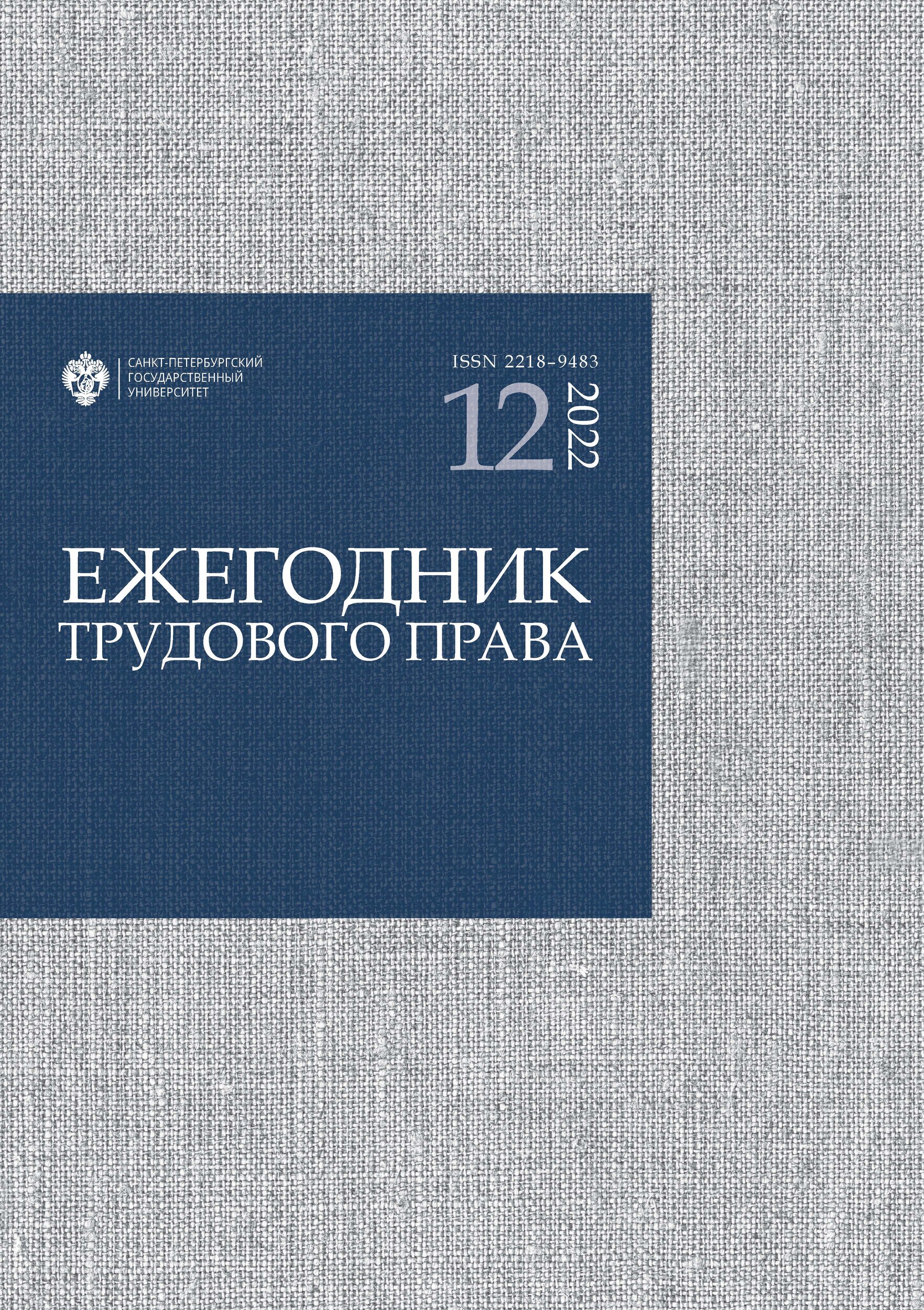Multinationals and supply chains: Key aspects of a new strategy for eliminating modern slavery
DOI:
https://doi.org/10.21638/spbu32.2022.114Аннотация
One of the most recent strategies to ensure the observance of human rights, including labor rights, consists of acting on transnational companies and the networks they form, radiating standards of human rights protection through supply chains. This strategy is an expression of so-called “refexive law” and makes use of hard law to regulate the operation of these companies. First, the author sets out the steps taken in international regulations and in various state-made legislations in this field, highlighting the pioneering nature of US legislation, the transcendence of the English model, and especially French legislation, in this latter case for inaugurating a more substantive due diligence requirement. And, based on a comparative analysis of these and other legislations, as well as on a series of reports of relevance in this area, the author highlights diğerent functions that this legislation holds (to protect human rights, fair competition and a general public interest beyond those aspects). The author also shows the evolution that this legislation has undergone over time. Finally, the author presents the most relevant questions and options for dealing with them, favoring a regulatory “pattern” to be followed by state or supranational legislation that has not yet dealt with this issue or to pay attention by those others which, having regulated it, identifies possible gaps to be filled in.
Ключевые слова:
child labour, due diligence, globalization, human rights, modern slavery, multinational enterprises, supply chains, transparency
Скачивания
Библиографические ссылки
References
Casale, Giuseppe. 2013. “Efficacia del Diritto del Lavoro e ruolo dell’Ispezione del Lavoro”. Rivista Italiana Diritto del Lavoro 2: 301–338.
Daugareilh, Isabelle. 2016. “Afrontar el reto de la globalización de la economía: por una refundación del papel del Estado.” Trabajo y Derecho 14: 16–24.
Fernández Martínez, Silvia. 2020. “The OECD guidelines for multinational enterprises and their implementation by the national contact points.” Lex Social 10, no. 2: 101–129.
García Murcia, Joaquín. 2007. “Deslocalización y tutela de los derechos sociales: la perspectiva europea.” Relaciones Laborales 6: 1159–1182.
Hernández Peribañez, María Eugenia. 2017. “Transnacionales y esclavitud moderna en la cadena de suministro textil: implementacion de la debida diligencia en derechos humanos y sus efectos en el acceso a mecanismos de reparacion judicial.” PhD diss., University of Valencia. Accessed February 1, 2022. https://dialnet.unirioja.es/servlet/tesis?codigo=184231/.
Krajewski, Markus, and Beata Faracik. 2020. “Briefing 1 — Substantive elements of potential legislation on human rights due diligence.” In Policy Department for External Relations. Directorate-General for External Policies of the Union, Human Rights Due Diligence Legislation-Options for the EU: 5–32.
Lantarón Barquín, David. 2019. La tutela internacional del trabajador: categorías y estrategias. El “trabajo decente” como telón de fondo. Valencia: Tirant Lo Blanch.
Lantarón Barquín, David. 2021. “La recherche d’un niveau de protection minimum applicable aux conditions de travail”. In L’impact des normes de l’o.i.t. sur la scène internationale. Actes du colloque organisé pour le centenaire de l’O. I. T., ed. by Nicole Maggi-Germain. 229–244, Le Kremliny-Bicêtre: Publishers Mare & Martin.
Methven O’Brien, Claire, and Olga Martin-Ortega. 2020. “Briefing 2. EU human rights due diligence legislation: Monitoring, enforcement and access to justice for victims”. In Policy Department for External Relations. Directorate-General for External Policies of the Union, Human Rights Due Diligence Legislation Options for the EU, 33–70. European Parliament (printed in Belgium).
Ovejero Puente, and Ana María. 2015. “Los principios Ruggie: un nuevo marco regulatorio para la gobernanza de la globalización.” Actualidad Civil 1: 1–15.
Tejeda Romero, Francisca, Montserrat Manzaneque Lizano and Regino Banegas Ochovo. 2014. “La corresponsabilidad social como factor impulsor de la responsabilidad social corporativa.” Revista Contable 19: 62–79.
Teubner, Gunther. 2005. El derecho como sistema autopoiético de la sociedad global, ed. by C. Gomez-Jara Díez. Lima: ARA editores.
Thrift, Nigel. 2002. “A hyperactive world”, In Reprinted in revised form in Geographies Of Global Change. Remapping the world, ed. by R. J. Johnston, P. J. Taylor and M. J. Watts, 29–42. Oxford: Blackwell Publishers.
Valverde Cano, Ana Belén. 2018. “Capítulo 8: Trata de seres humanos con fines de explotación laboral: la problemática de las definiciones”. In La trata de seres humanos: protección de las víctimas, dir. by F. M. Ferrando García and E. Blas Peña, 179–196. Murcia: Laborum Publishers.
Vidal Gil, Ernesto J. 2012. “Las raíces del Estado Social en la Unión Europea.” Revista Europea de Derechos Fundamentales, no 20/2º semester: 13–44.
Загрузки
Опубликован
Как цитировать
Выпуск
Раздел
Лицензия
Статьи журнала «Ежегодник трудового права» находятся в открытом доступе и распространяются в соответствии с условиями Лицензионного Договора с Санкт-Петербургским государственным университетом, который бесплатно предоставляет авторам неограниченное распространение и самостоятельное архивирование.




